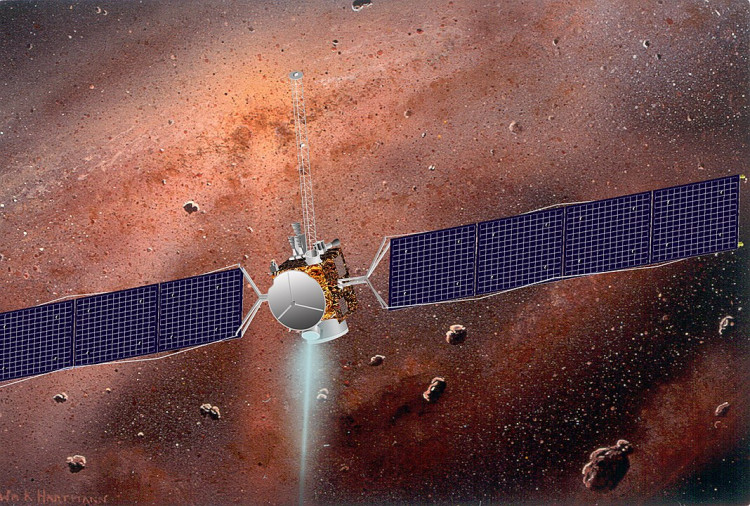NASA has confirmed there is a huge asteroid soaring through space at an alarming speed, but will it hit the Earth? The object is about 21 meters long and as wide as a blue whale that will inevitably cause significant damage if it hits a certain place. If this thing happens to strike the planet, can it destroy a city and cause extinction?
According to Express, the asteroid, which is known as 2019 SL7, travels through space at a fast speed of 17.1 kilometers per second or 61,500 kilometers per hour. So what does it has something to do with us? NASA is now on alert as this rock is about to fly past on Earth that may cause a catastrophe if it hits our planet.
The 2019 SL7 will fly by at a distance of 1.4 lunar distances (LD). As the LD between the Earth and the moon is only one, it only means that this object will pass the planet at a distance of 538,162 kilometers. It is so close that NASA labels it as a near-Earth object (NEO).
With its size, it can be compared to the 20-meter asteroid that hit Chelyabinsk Russia that smashed windows and caused injuries to over 1,000 people in 2013. No one anticipated the incident at the time. Six years later, is the Earth already prepared for an asteroid like this?
Although the chance of a major asteroid hitting the Earth is relatively small, it is still not impossible. NASA believes there is a one in 300,000 chance every year that a huge space rock may hit Earth that may cause environmental damage.
SpaceX chief Elon Musk previously tweeted fears of a possible deadly collision that Earth was never prepared for. "Wouldn't worry about this particular one, but a big rock will hit Earth eventually & we currently have no defense," he said.
NASA is currently studying Asteroid Bennu, where OSIRIS-Rex spacecraft arrived last year. The rocket ship aims to gather more information about the space rock that measured about 500 meters in length that could potentially hit the Earth in the next 125 years.
This huge asteroid has the potential to create massive damage and even wipe out a country on Earth. Its next flyby is expected to be in 2135. Fortunately, Musk's company won a contract to build components for NASA's Double Asteroid Redirection Test (DART) that will try to redirect and deflect asteroids before it hits the Earth.






